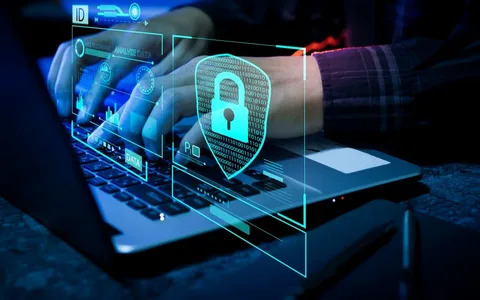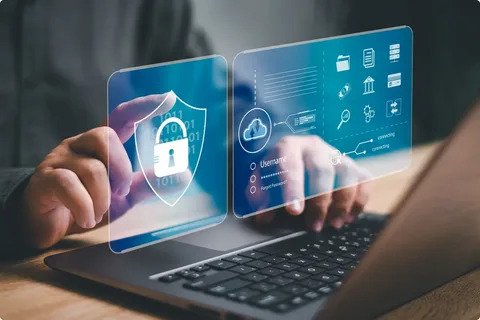Why Cybersecurity Matters More Than Ever in 2025
In 2025, we are more connected than ever. From online banking and social media to smart home devices and cloud storage, our lives revolve around digital systems. With this convenience comes increased vulnerability. Cybercriminals are using sophisticated tools powered by AI and machine learning to exploit gaps in security. Whether you’re a student, freelancer, small business owner, or casual internet user, understanding the basics of cybersecurity is essential. You don’t need to be a tech expert to protect your data—just following a few practical tips can make a big difference.
Use Strong, Unique Passwords for Every Account
One of the most basic yet overlooked cybersecurity practices is using strong, unique passwords for every account. Avoid using the same password across multiple sites. In 2025, password-cracking tools can guess weak passwords in seconds. A good password should be at least 12 characters long, with a mix of letters, numbers, and symbols. Better yet, use a password manager like Bitwarden, LastPass, or 1Password to generate and store passwords securely. These tools also warn you about reused or weak credentials.
Enable Two-Factor Authentication (2FA)
Even strong passwords can be compromised. That’s why Two-Factor Authentication (2FA) is crucial. 2FA adds an extra layer of security by requiring a second verification step—usually a code sent to your phone or generated by an authenticator app. Most email services, social networks, and banking platforms offer 2FA, and enabling it drastically reduces the risk of unauthorized access. For even better security, opt for hardware security keys like YubiKey for sensitive accounts such as cryptocurrency wallets or work email.
Stay Updated Always Install Software and System Updates

Keeping your devices updated is one of the easiest ways to stay secure. Hackers often exploit known vulnerabilities in outdated software. Developers regularly release patches to fix these issues, and ignoring updates leaves you exposed. Enable automatic updates wherever possible, including for your operating system, browser, antivirus software, and applications. In 2025, updates are often security-driven, so procrastinating them can lead to real-world risks like ransomware attacks or identity theft.
Beware of Phishing Scams and Suspicious Emails
Phishing remains one of the most common and successful cyberattack methods. Scammers trick you into giving up sensitive information by pretending to be trusted sources. In 2025, phishing emails can look incredibly convincing—sometimes using AI-generated language or fake login pages that mimic real ones. Always double-check sender addresses, hover over links before clicking, and avoid downloading unexpected attachments. If in doubt, contact the organization directly using verified contact information.
Secure Your Wi-Fi and Use a VPN
Your home Wi-Fi network is the gateway to all your connected devices. Make sure your Wi-Fi is password-protected, encrypted (using WPA3 if available), and hidden from public view by disabling SSID broadcasting. Change the default username and password of your router, as default credentials are easy for hackers to guess. When using public Wi-Fi—like at airports or cafes—always use a VPN (Virtual Private Network) to encrypt your internet connection and protect your data from being intercepted.
Be Smart About What You Share Online
In the age of oversharing, your personal data can easily fall into the wrong hands. Cybercriminals often piece together information from social media profiles to answer security questions or launch targeted scams. Avoid posting sensitive details like your birthday, address, or travel plans. Also, review your privacy settings on platforms like Facebook, Instagram, and LinkedIn. In 2025, digital footprints are permanent and far-reaching, so being mindful of what you share is a major step toward protecting your identity.
Back Up Your Data Regularly
Imagine losing all your important documents, photos, or business files due to a cyberattack or hardware failure. Regular data backups are your safety net. In 2025, cloud backup services like Google Drive, iCloud, and Dropbox offer automated and encrypted solutions. Alternatively, use external hard drives or SSDs for offline backups. Follow the 3-2-1 backup rule: 3 copies of your data, on 2 different types of media, with 1 stored off-site. This ensures that even in a worst-case scenario, you can recover your information.
Use Antivirus and Anti-Malware Tools
Despite built-in protections in modern operating systems, a dedicated antivirus and anti-malware program adds an extra layer of security. Tools like Norton, Bitdefender, and Malwarebytes offer real-time scanning, malicious website blocking, and ransomware protection. Some even include VPN services and dark web monitoring. In 2025, AI-powered antivirus software can detect threats before they become widespread, using behavior-based analysis rather than just signature databases. Free options exist, but premium versions offer more comprehensive protection.
Educate Yourself and Stay Informed
Cybersecurity is constantly evolving, and staying informed is your best defense. Subscribe to security blogs, follow experts on platforms like LinkedIn or Twitter, and watch out for major security news. Many websites and courses now offer free resources for beginners, such as Google’s Cybersecurity Certificate or Cyber Aware by the UK government. The more you understand about how threats work, the better equipped you’ll be to avoid them. In 2025, cyber hygiene is a life skill—just like locking your doors or buckling your seatbelt.
Conclusion
As we rely more heavily on technology in 2025, cybersecurity must be a personal priority—not just something left to IT professionals. Protecting your data doesn’t require deep technical knowledge; it starts with simple, consistent habits. By using strong passwords, enabling 2FA, updating your software, and staying alert to phishing attempts, you drastically reduce your risk of falling victim to cybercrime. Think of cybersecurity as an investment in your peace of mind and digital independence. Start today, and build a safer online life—one click at a time.

Leave a Reply